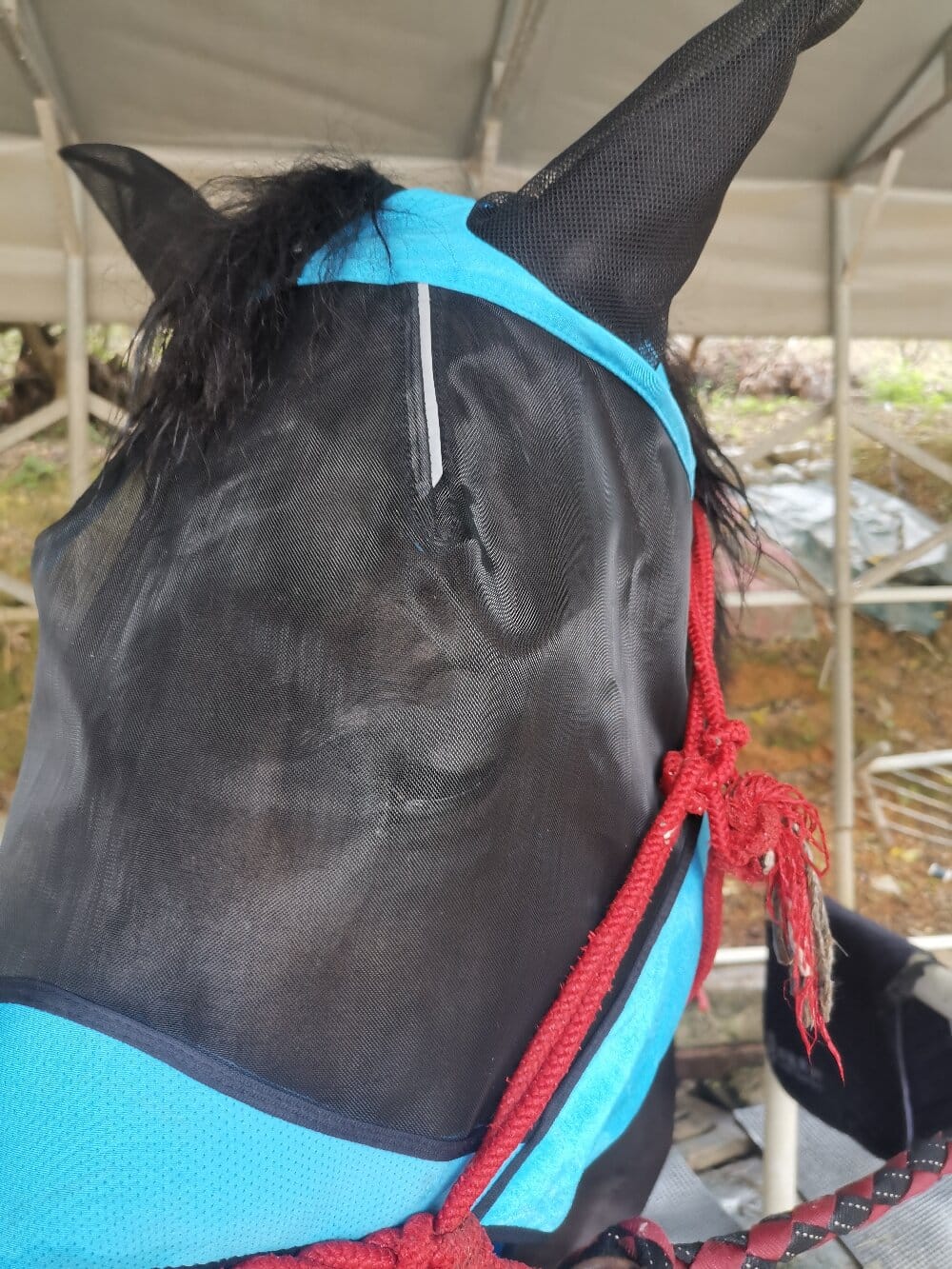A horse fly mask is an essential piece of equestrian gear designed to protect horses from irritating and potentially harmful insects. These masks shield the animal’s eyes, ears, and face from flies, mosquitoes, and other pests, ensuring comfort and preventing infections. Beyond basic protection, fly masks can also offer UV protection, making them invaluable for horses spending long hours outdoors. This article explores the benefits, types, and real-world applications of fly masks through case studies and multi-perspective insights.
Case Study: How a Fly Mask Improved a Horse’s Quality of Life
Consider the case of Bella, a thoroughbred mare prone to eye infections due to constant fly exposure. Her owner, Sarah, noticed frequent irritation and swelling around Bella’s eyes during summer months. After consulting a veterinarian, Sarah invested in a high-quality horse fly mask with UV protection. Within weeks, Bella’s symptoms diminished, and her overall demeanor improved. This real-life example highlights how fly masks can significantly enhance a horse’s well-being.
Types of Horse Fly Masks: Which One Is Right for Your Equine?
Fly masks come in various designs, each catering to specific needs. Here’s a breakdown of the most common types:
- Standard Fly Masks: Cover the eyes and ears, providing basic protection against insects.
- Full-Face Fly Masks: Extend coverage to the muzzle, ideal for horses sensitive to nose flies.
- UV-Protective Fly Masks: Block harmful sun rays while keeping pests at bay.
- Earless Fly Masks: Designed for horses that dislike ear coverage but still need eye protection.
Choosing the right type depends on your horse’s environment, sensitivity, and activity level.
The Veterinarian’s Perspective: Health Benefits of Fly Masks
Dr. Emily Carter, an equine veterinarian, emphasizes the health advantages of using a horse fly mask. “Flies can transmit diseases like conjunctivitis and equine infectious anemia,” she explains. “A well-fitted fly mask reduces these risks while preventing scratches and allergic reactions.” Dr. Carter also notes that horses with light-colored coats or pink skin are more susceptible to sunburn, making UV-blocking masks particularly beneficial.
Owner Experiences: Real Feedback on Fly Mask Effectiveness
Horse owners across forums and equestrian communities share mixed but mostly positive experiences. Many report fewer vet visits and happier horses, while others highlight challenges like sizing issues or mask durability. One owner, Mark, shared, “My gelding used to rub his face raw trying to escape flies. The mask stopped that behavior entirely.” Such testimonials underscore the practical value of this accessory.
Common Misconceptions About Horse Fly Masks
Despite their benefits, some misconceptions persist:
- Myth: Fly masks are only for show horses. Reality: All horses exposed to flies can benefit.
- Myth: Masks cause overheating. Reality: Modern designs use breathable mesh.
- Myth: Horses dislike wearing them. Reality: Most adapt quickly once comfortable.
Educating owners helps dispel these myths and promotes better equine care.
Conclusion: Why Every Horse Owner Should Consider a Fly Mask
A horse fly mask is more than a seasonal accessory—it’s a proactive measure for equine health. From preventing painful infections to improving comfort during turnout, the benefits are clear. Whether you own a competition horse or a pasture pet, investing in the right fly mask can make a world of difference. By understanding the options and listening to expert and peer advice, you can choose the best protection for your horse’s needs.

